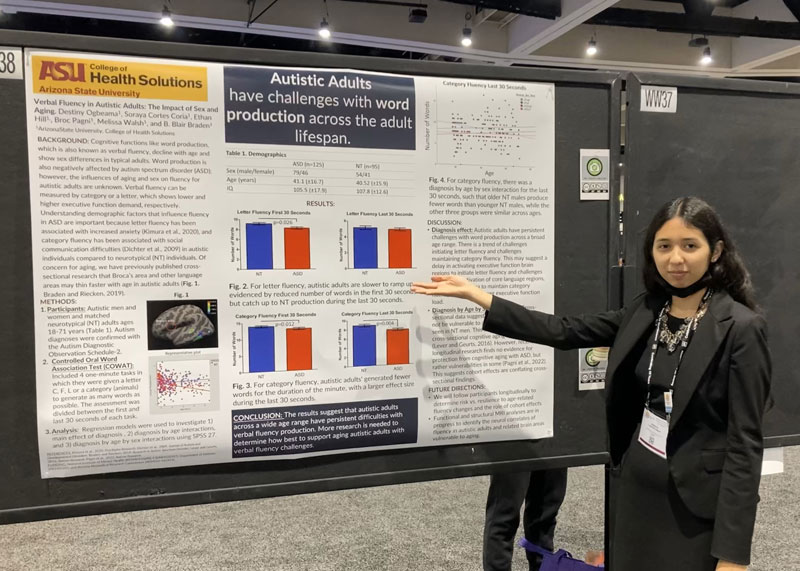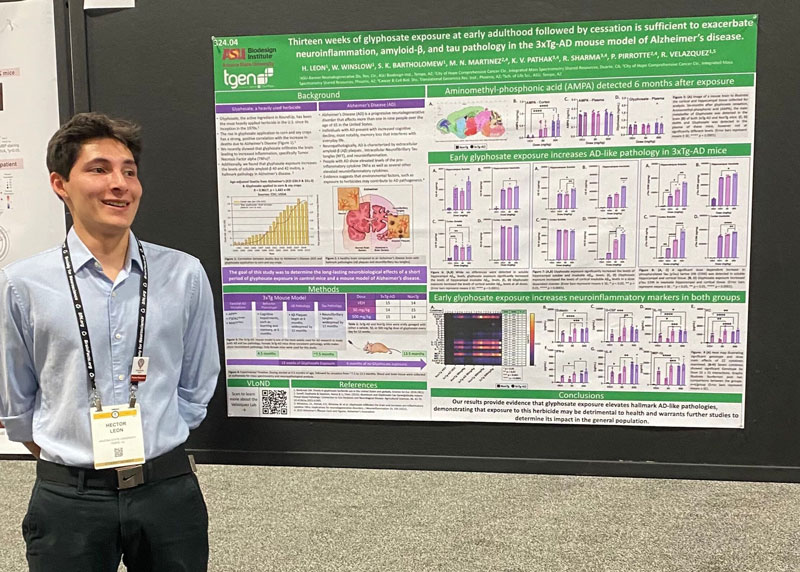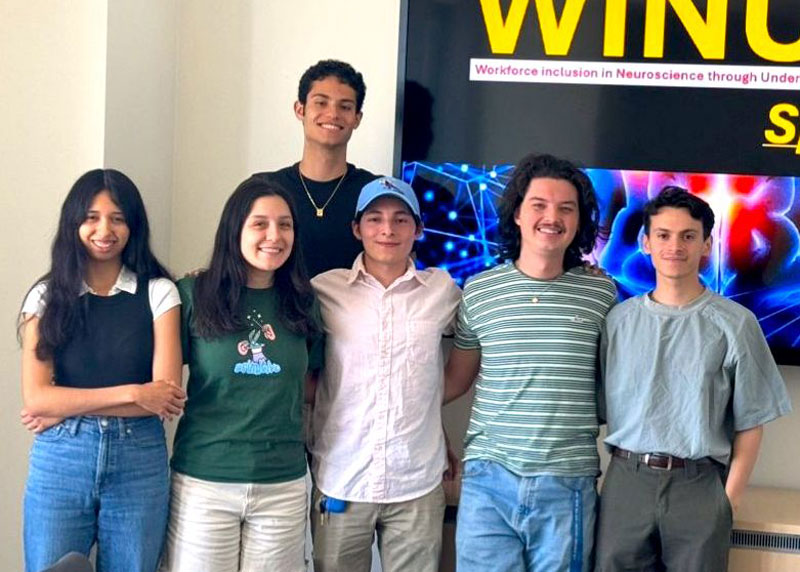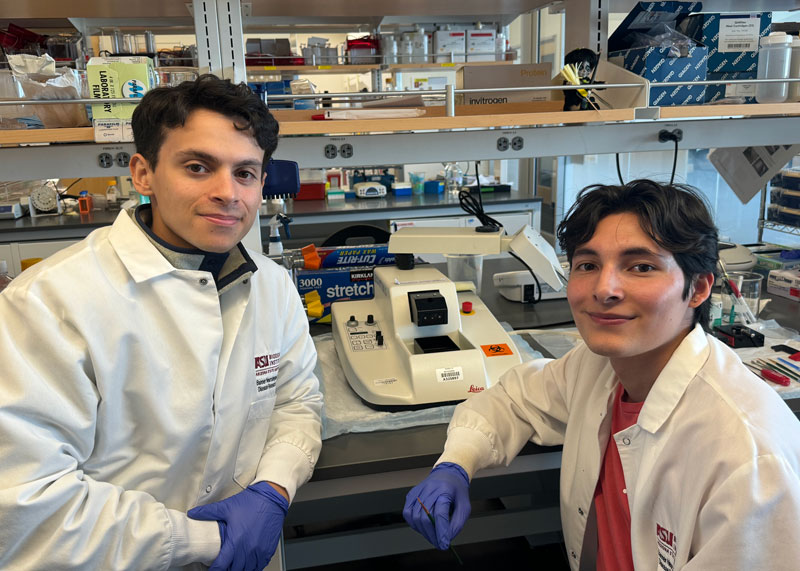
Workforce Inclusion in Neuroscience Through Undergraduate Research Experience (WINURE)
If you’re seeking a career in neuroscience, you can choose from a wide variety of career paths. These include biomedical research and teaching, pharmaceuticals, clinical sciences, biotechnology, neuropsychology and much more. The WINURE program is designed to help minority students prepare for graduate training in neuroscience.
About WINURE
This program was founded by Professor Emeritus Janet Neisewander, PhD and is currently directed by Professor Ramon Velazquez PhD, who himself is an underrepresented minority in neuroscience and was in a similar program as an undergraduate.
We work to build diversity in the neuroscience workforce by fostering the career development of students like you who are interested in this field and who are from underrepresented groups. Our goal is to help you successfully transition into graduate programs in neuroscience upon your graduation from ASU.
According to the National Science Foundation, only about 8 percent of science and engineering doctorate degrees and 14.5 percent of master’s degrees were earned by underrepresented minorities in 2014. We hope to change that. We seek motivated students from ASU’s large populations of groups underrepresented in the neurosciences, including Black, Hispanic and Native American students as well as first-generation college students.

When to apply
We are not currently accepting applications for the 2024-2025 school year. Please check back for the 2025-2026 application cycle.
Why you should apply
Research experience as an undergraduate provides a great stepping stone to graduate training in neuroscience. As a WINURE scholar, you’ll gain important laboratory skills, strengthen your neuroscience knowledge, prepare for graduate school and network with other neuroscience researchers.
To get started, you’ll choose a mentor whose neuroscience research fits with your interests. You’ll receive funding to conduct research in your mentor’s laboratory during the school year and over the summer. You’ll also receive yearly financial support for travel to scientific conferences where you can present your research and network with other researchers, including potential graduate school mentors. The director of the program also assists and encourages students to apply for summer internship at the end of student’s first year to diversify their curriculum vitae.
WINURE Symposium Agenda
June 27, 2025
Tempe Center for the Arts, 700 W Rio Salado Pkwy, Tempe, AZ
| Time | Session | Presenter |
| 9:00 a.m. | Opening remarks | Ramon Velazquez, WINURE Program Director |
| 9:15 a.m. | Keynote address | Dr. Holly Lisanby Dean & Professor, ASU School of Medicine and Advanced Medical Engineering |
| 10:15 a.m. | Break | |
| 10:30 a.m. | Alumni Talks | Arturo Zavala, PhD Brooke Hjelm, PhD Elizabeth Engler-Chiurazzi, PhD |
| 12:00 p.m. | Lunch | |
| 1:00 p.m. | New faculty talks | Aaron McGee, PhD Ashley Keiser, PhD Chia-Ling Phuah, MD |
| 2:15 p.m. | Break | |
| 2:30 p.m. | WINURE career development panel | |
| 3:30 p.m. | Closing remarks and social hour | |
Eligibility
- To be eligible to apply you must:
- Be a U.S. Citizen or permanent resident with legal verification of your status.
- Be a full-time student at ASU from a racial or ethnic minority (Black, Hispanic, Native American) and/or first-generation college student (neither parent has earned a bachelor’s degree from a four-year college or university).
- Have a high school GPA of 3.3+ or a minimum of 20 college credit hours with a GPA of 3.3+.
- Have declared a major in a STEM field* and have a strong desire to pursue a research career in neuroscience.
*STEM fields include biology, biochemistry, engineering, math, psychology, speech and hearing sciences.




